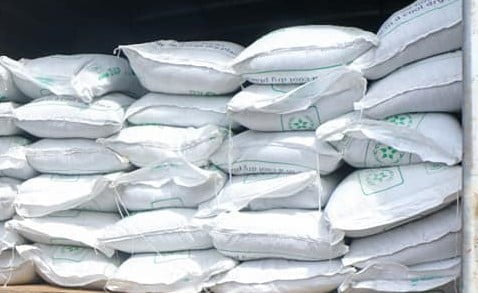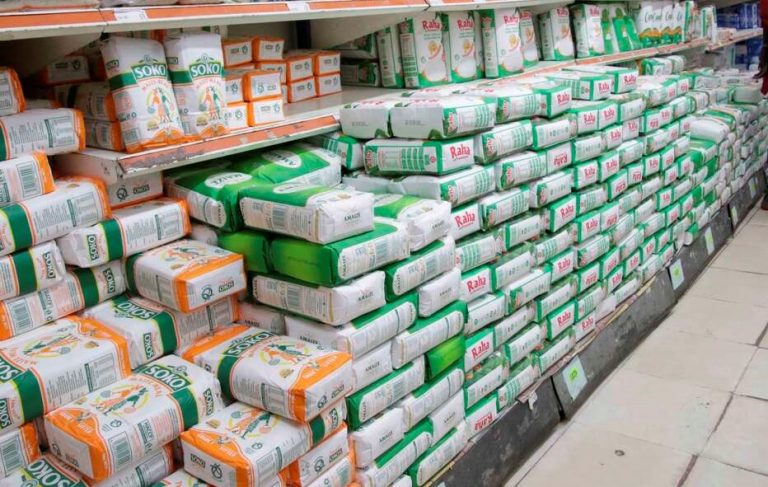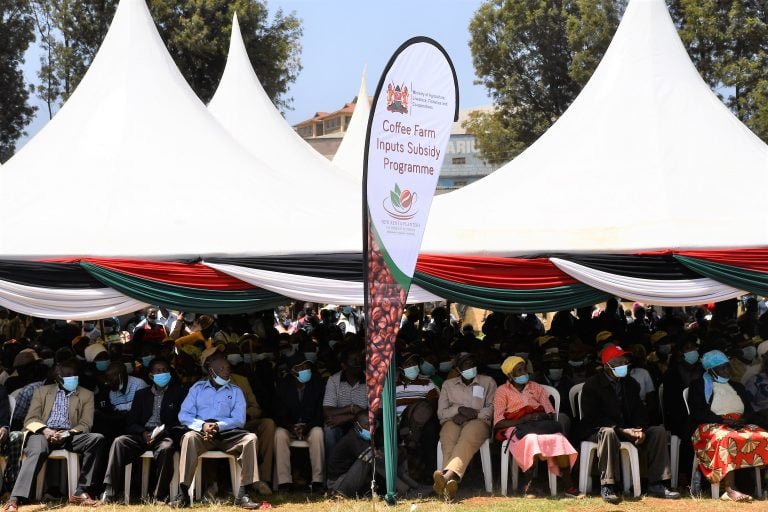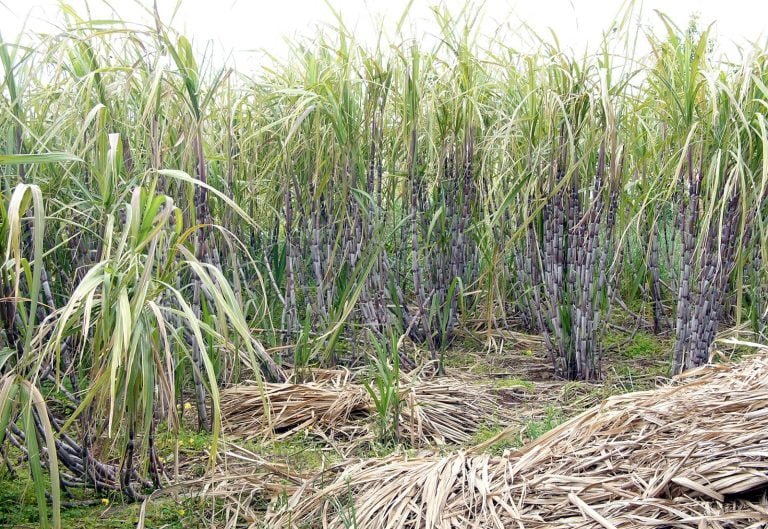Agriculture CS Peter Munya has today unveiled the Warehouse Receipt System Council to oversee the operations of the Warehouse Receipt Systems (WRS) in Kenya. This will be done with County Governments and other stakeholders. The Council comprises of multi-sectorial representatives from the major agricultural commodities’ trade ecosystem in the public and private sector.
The Warehouse Receipt System (WRS) is a process where owners of commodities, who may be producers or dealers, deposit their commodities in certified warehouses and are issued with a document of title called a Warehouse Receipt as proof of ownership.
The warehouse receipt confers benefits that include;
- Creating flexibility in the sale process as farmers are not forced to sell in distress at harvest when prices are low; they have a choice to wait for more favourable prices at a later time.
- Encouraging increased lending to the Agricultural sector by pledging the receipt, which reflects the value of the commodity, as an alternative collateral and mitigating risk associated with non-payment within a structured trading system.
- Promoting aggregation of produce by small scale farmers enabling access to large traders, processors and government at a better price.
- Enabling small scale farmers to participate in a modern and efficient market with standard produce quality and weights.
- Reducing price volatility and improving liquidity as the first step towards a Commodity Exchange and improved price discovery.
The CS says that initially, the Council will focus on implementing the Warehouse Receipt System for coffee, tea, rice, beans, green grams, and wheat but progressively expand to cover other agricultural commodities.
“It is expected that the warehouse receipt will lead to the development of aggregation and off take centers across the country; a network of modern certified agricultural produce warehouses, and linkages with structured trading platforms such as commodity exchanges and auctions,” says Munya.
The Agriculture Sector Transformation and Growth Strategy identifies the creation of a Warehouse Receipt System as a key intervention to improve commodity storage, reduce average post-harvest losses, curb value chain inefficiencies, increase financial earnings to farmers, traders and service providers in the agricultural commodity trade.
“The Warehouse Receipt System is therefore intended to offer a range of solutions to farmers, especially the smallholder farmers who face several challenges related to inefficiencies brought about by lack of a transparent and structured market system,” says the CS. He adds that the Warehouse Receipts System is principally a first step in the creation of a functional Agricultural Commodities’ Exchange.
Munya says during the next harvesting season starting early October 2020, the Ministry’s management of newly acquired Strategic Food Reserves Stocks will be under the WRS.
He urged the new team to deliver on the new mandate given to them. “Going forward you will be expected to support and ensure that WRS Council management develops and refines a system for effective regulation of WRS activities and roll out the system for the benefit of the general public. You are also expected to attract investments into the warehouse sector from the private sector actors who are very vibrant in Kenya. From what I have been told, the private sector has been waiting for this system for over 10 years and even pioneered the system on their own,” opined Munya.
He urged the council to work closely with other Ministries and State agencies such as State Department of trade, Capital Markets Authority (CMA), National Cereals and Produce Board (NCPB), Kenya National Trading Corporation (KNTC), New KPCU and relevant private sector institutions to ensure the reforms gain momentum and deliver on the intended outcomes.
Munya says that successful Pilot programmes on the Warehouse Receipt System have been conducted by both public and private sector players in Kenya in the last 5 years. “Reports from farmers who participated in the pilot indicate premium benefits realized through the Warehouse Receipt System. They said it reduced pressure to sell their produce immediately after harvests when prices are normally low. In addition, the system enabled the farmers to access credit as they wait for favourable prices. Farmers also realized a threefold production,” he adds.
The CS says the Council is expected to implement in full the provisions of The Warehouse Receipt System Act No. 8 of 2019 and the Regulations therein and specifically to:
- Immediately develop and establish The Warehouse Receipt System for agricultural commodities produced in Kenya; one that ensures efficiency, effectiveness and integrity;
- Develop and implement, in conjunction with relevant Government agencies, an efficient commodity grading and weighing system that ensures quantity and quality assurance and facilitate the enforcement of commodity standards necessary for the warehouse receipting system;
- Promote the development of a national network of privately or publicly managed warehouses that have the capacity to issue warehouse receipts.
The Council Members are
| Mrs. Jane MUMBI Ngige | Chairperson |
| Anthony Gikandi Muriithi | Ag. Director General, Agriculture and Food Authority (AFA) |
| Ms Rose Mutuku | Eastern Africa Grain Council |
| Eng. Kennedy Wandera Makudiuh | Ministry of Agriculture Livestock, Fisheries & Cooperatives |
| Christine Mwai- Marandu | Kenya Bankers Association |
| Mr. Benson Loktari | Council of Governors |
| Mr. Samwel O. Ogola | Ag. CEO, Warehouse Receipt System Council |











